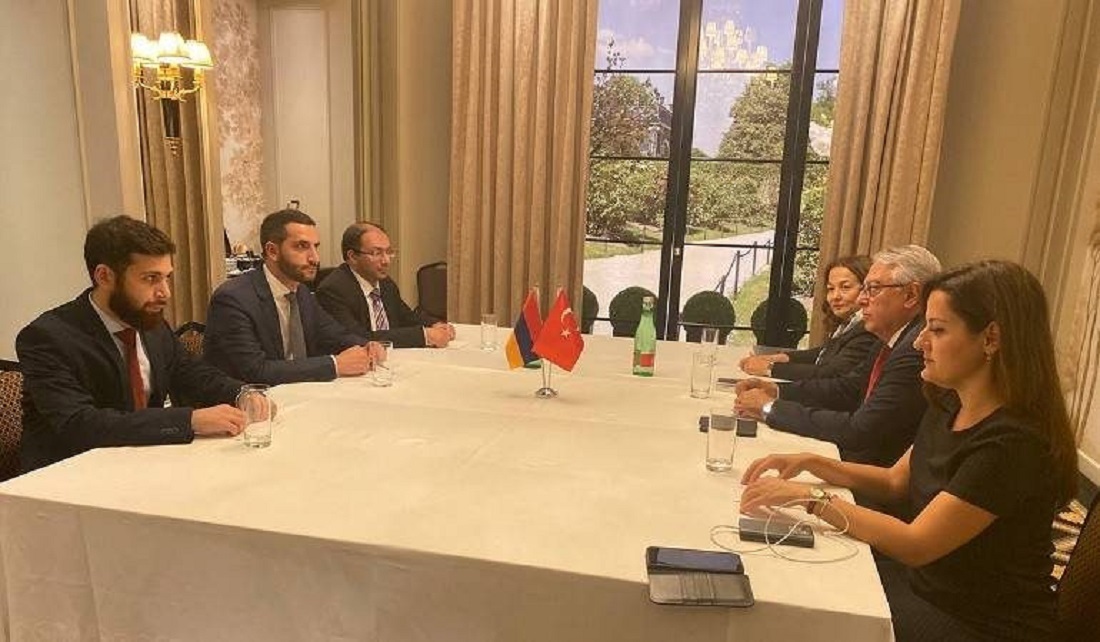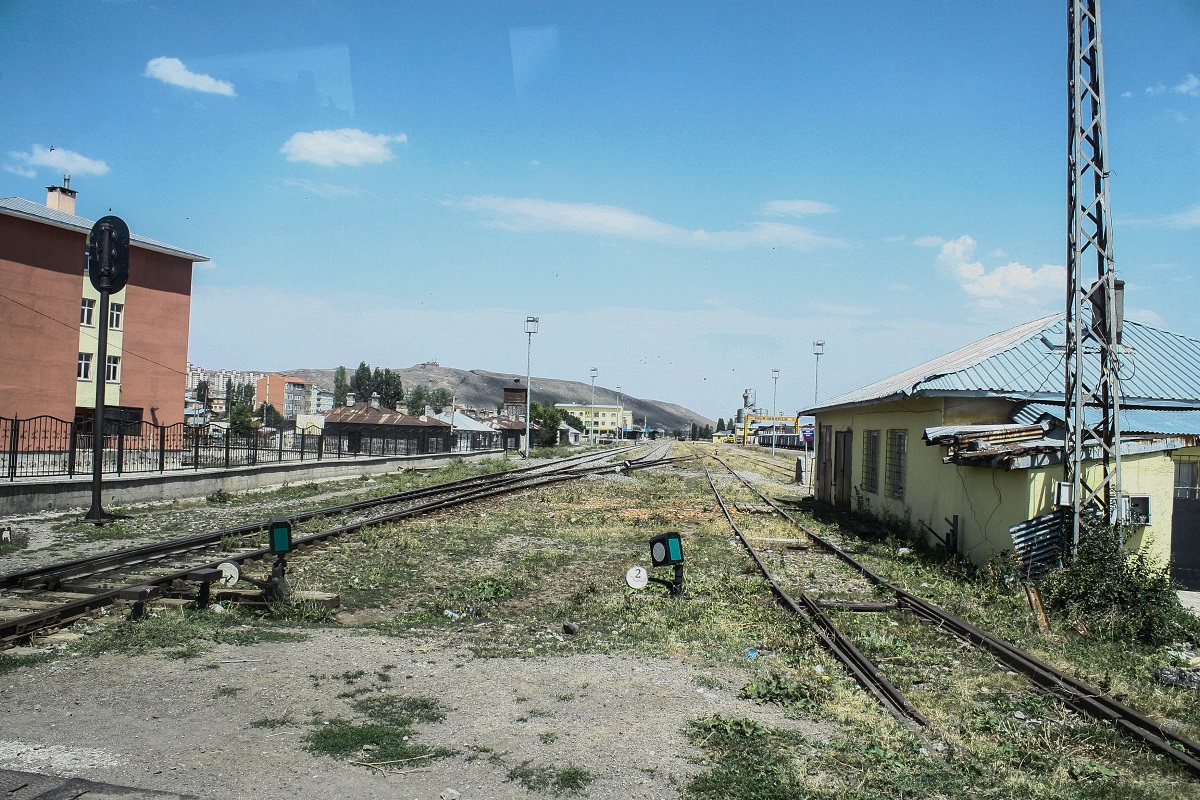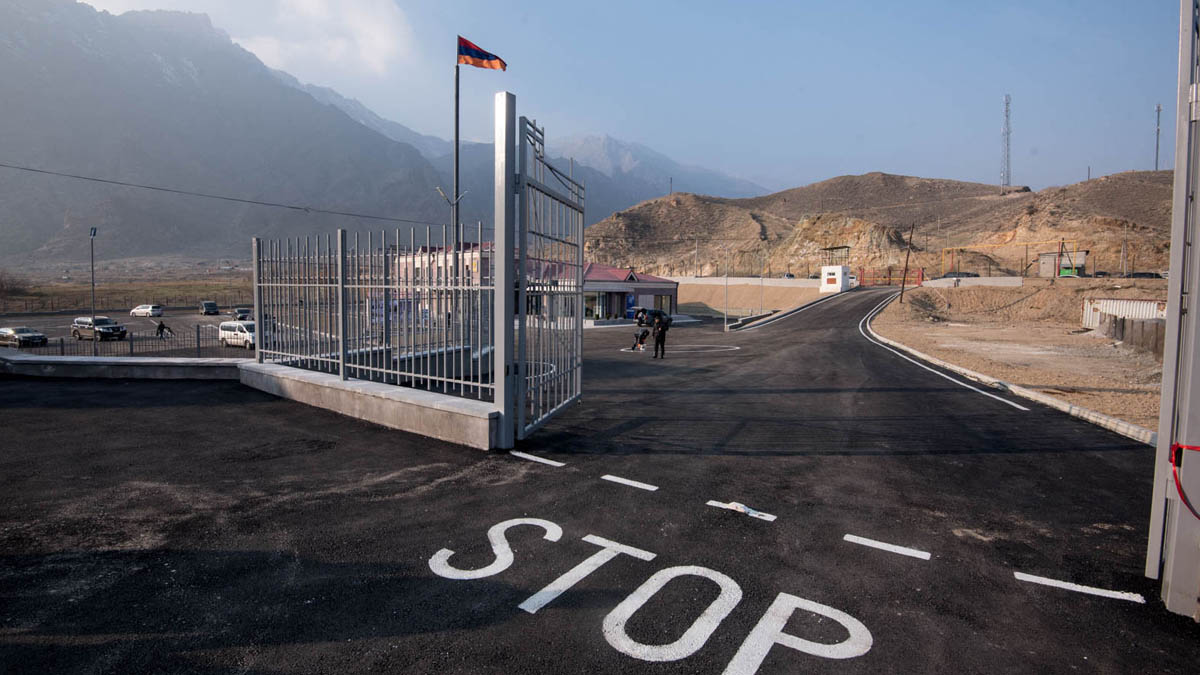Special representatives of Armenia and Turkey met at the border: what was agreed upon
Rubinyan-Kılıç border meeting
Special representatives for the normalization of Armenia–Turkey relations, Ruben Rubinyan and Serdar Kılıç, met at the Margara-Alican border checkpoint. According to an official statement from the Armenian Foreign Ministry, both parties reaffirmed agreements reached during previous meetings. However, no timelines for implementation were provided. The discussions included the opening of the border for citizens of third countries.
This meeting marks the fifth encounter between Rubinyan and Kılıç. The previous meeting took place in July 2022 in Vienna. After a two-year hiatus, the parties “agreed to assess the technical requirements in line with regional developments to ensure the operation of the Ahurik/Akyaka railway border checkpoint and mutually simplify visa procedures for holders of diplomatic/service passports.”
Political analyst Robert Ghevondyan links the resumption of Armenian-Turkish negotiations primarily to disagreements within the Turkish-Azerbaijani tandem. He believes the dissatisfaction stems from Ankara not receiving what it anticipated after the 2020 Karabakh war. Regarding the Rubinyan-Kılıç agreements, he notes that the parties have also begun discussing the possibility of restoring railway connections. He is convinced that if progress is made in this or any other area, the normalization process will accelerate, and “the next steps will happen very quickly”.
Turkey officially recognized the independence of the Republic of Armenia on December 24, 1991. However, diplomatic relations between the countries have not yet been established. Turkey unilaterally closed the land border between the countries in 1993. It opened for several hours in February 2023 to allow Armenian trucks carrying humanitarian aid to pass through to the earthquake zone in Turkey.
Talks about normalizing Armenian-Turkish relations intensified after the 2020 Karabakh war. The normalization process is proceeding bilaterally, but the Turkish side consistently emphasizes that it coordinates the negotiation agenda with Baku.
- Turkey’s position on Armenia-Azerbaijan peace agreement: a view from Yerevan
- Turkey’s role as a mediator in Armenia-Azerbaijan talks: What will come of it?
- Opinion on Armenian-Turkish relations
Agreement to open the border still unfulfilled
Before this meeting of the special representatives for the normalization of Armenian-Turkish relations at the border, four other meetings had taken place. All previous negotiations were held in 2022. The first meeting was organized in Moscow, and three were held in Vienna. After each round of talks, both parties traditionally stated their intention to continue efforts aimed at a “full normalization of relations without preconditions.”
During the fourth meeting, which took place on July 1, 2022, specific agreements were reached, namely:
- “To enable the crossing of the Armenian-Turkish land border for citizens of third countries,
- To begin direct air cargo transportation between Armenia and Turkey.”
In January 2023, the ban on direct air cargo transportation was lifted. However, there has been no progress regarding the opening of the border for citizens of third countries.
A month ago, Ruben Rubinyan told Armenian journalists:
“We see no steps from the Turkish side to implement this agreement.”
Armenia completed renovation of “Margara” checkpoint in 2023
The major renovation of the “Margara” checkpoint on the Armenian-Turkish border has been fully completed. The State Revenue Committee reported that the construction work lasted about six months and was finished in November of last year:
“A service hall, deep inspection hangar, cargo processing booths and warehouse, parking lots, a spacious area, and other infrastructure facilities meeting international standards have been built.”
Late last week, on July 26, Armenian prime minister Nikol Pashinyan visited the checkpoint as part of his visit to the Armavir region. He stated that the renovation of the checkpoint cost 1 billion drams (nearly $2.6 million).
Commentary
Political analyst Robert Ghevondyan says that the normalization process of Armenian-Turkish relations is progressing much slower than desired, but the important thing is that it is moving forward.
“If the implementation of the agreements starts, we will see a snowball effect. The process will gain momentum, and subsequent regulations will be adopted very quickly,” he told JAMnews.
However, the political analyst suggests that nothing significant will happen until after the U.S. elections in November. According to Gevondyan, only after the elections will “all negotiations gain substance.”
He does not rule out that after the simplification of visa procedures, the border will open for citizens of third countries and holders of diplomatic passports. This could be followed by the permission for land cargo transportation.
From the statement published by the Armenian Foreign Ministry, Ghevondyan concludes that the negotiators also discussed the possibility of restoring railway connections:
“The railway has existed since the Soviet era. Operating it is much easier and cheaper than building a new railway. It is even simpler and cheaper than constructing and operating new highways.”
Political analyst Robert Ghevondyan attributes the two-year break in communication between Rubinyan and Kılıç to the geopolitical situation, specifically Turkish-Azerbaijani relations and the Russia-Ukraine war:
“The warming of Armenian-Turkish relations is linked to certain issues in relations between Turkey and Azerbaijan. These issues likely stem from Ankara not getting what it hoped to achieve in 2020, following the 44-day war.“
The analyst believes it is not a coincidence that Erdogan recently stated that Turkey has “entered” Nagorno-Karabakh. According to Ghevondyan, the reason is that Turkey, having acted as a “conflicting and victorious party, has no achievements on the ground.”
Ghevondyan points out that economic relations with Azerbaijan remain the same, Turkish military bases have not been established in the country, and the level of interaction with Nakhichevan is unchanged.
“Turkey has not achieved any significant gains after the war. It didn’t even remain in the region after the war. The Turks were only in Aghdam [where the Russian-Turkish monitoring center was located]. But they are not there anymore; the center has been dismantled,” he explained.
“We must be strong. Just as we entered Karabakh and Libya, we will do the same with them [Israel]. There is nothing impossible for us,” stated the president of Turkey. In response, the Azerbaijani Ministry of Defense said that Turkey and Pakistan provided political support to Azerbaijan, for which Ilham Aliyev has repeatedly thanked them, but “the armed forces of other states did not participate in the battles.”
Even in this situation, according to Ghevondyan, Baku has leverage over Ankara:
“The problem is that this leverage will not be as effective as before unless Azerbaijan drastically changes its policy, goes against Russia’s will on certain issues, and accepts Turkey’s proposals.”
The analyst suggests that Azerbaijan is likely under pressure from Moscow to reject the road linking to Nakhichevan, which would be controlled by Armenia, and instead demands a “corridor,” meaning an extraterritorial route. In his opinion, Turkey would find even this option acceptable:
“Armenia, Iran, and the West disagree with the version that Azerbaijan demands. Meanwhile, Baku does not agree with the option that would be acceptable to Turkey and more lenient and suitable for Armenia.”






















